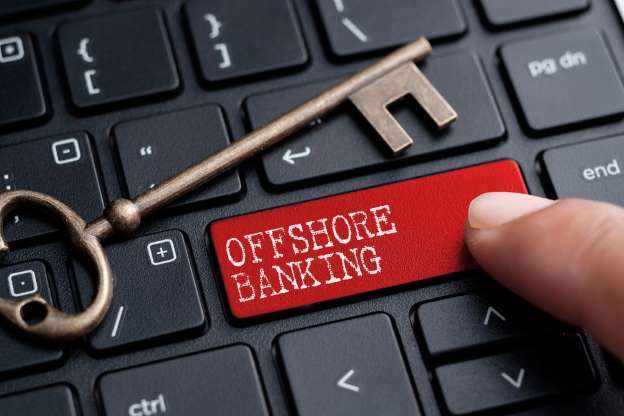What Are the Ramifications of Offshore Banking?
In the event that you were keen on the Panama Papers embarrassment, you may be interested about seaward banking. Maybe you have been thinking about reserving a portion of your cash seaward? Maybe you have wavered in light of the fact that you would rather not breeze up in a difficult situation with the Internal Revenue Service (IRS). Seaward banking has a charm for some, yet it’s much surprisingly unremarkable.
Key Takeaways:
• Utilizing the administrations of a bank beyond your nation of origin isn’t unlawful on the off chance that it is finished for genuine reasons.
• A few unfamiliar banks will begin a record from an unfamiliar client with just $300 while others won’t carry on with work by any stretch of the imagination with unfamiliar clients as a result of consistence prerequisites.
• Seaward financial balances should be pronounced to the holder’s nation of origin for charge reasons; be that as it may, a few nations permit outsiders to procure capital increases tax-exempt.
• People might decide to keep their cash seaward in the event that there is precariousness in their own nation, and they dread losing their ventures.
How Offshore Banking Works
In the first place, we should nix deceiving terms, for example, “stash,” “stow away,” or even “seaward ledger.” Using the administrations of a bank beyond your nation of origin isn’t unlawful. What’s more, albeit the expression “seaward” in a real sense applies at times — a ledger in the Bahamas, for instance — carrying on with work in Canada could be only a drive away. The training isn’t only for the rich. A few unfamiliar banks will take just $300 of your cash and begin a record. Like banks all over the place, those abroad set their own record essentials and different terms for clients. Then again, a few unfamiliar banks won’t work with for certain unfamiliar clients in view of the expected consistence. The Organization for Economic Cooperation and Development (OECD) and the World Trade Organization (WTO) have decides that expect banks to report data on their unfamiliar clients. Every nation conforms to these regulations in an unexpected way. A few nations don’t consent by any means.
What might be said about Swiss Bank Accounts?
The renowned “Swiss financial balance,” or James Bond-like records that places rich individuals’ cash out of the grip of their own nation’s administration, the IRS, for instance, accompany severe Swiss protection regulations. This protection is the justification for their ubiquity. Previously, Swiss banks didn’t actually append names to accounts. Nonetheless, Switzerland has consented to surrender data to unfamiliar legislatures for them holders, really finishing any tax avoidance that might have accompanied having an unreported, or stowed away, account.
The Benefits of an Offshore Account
Tax avoidance was not by any means the only motivation to hold a Swiss financial balance. There are a lot of genuine motivations to hold cash out of your nation of origin. To begin with, there’s the duty treatment. In numerous nations, you can bring in cash tax-exempt. How might you want to give your cash something to do in another nation, procure capital gains and pay no expenses to that country? That is in fact conceivable when you move your cash seaward. Indeed, even the United States permits the training. As of late, the United States has become one of the world’s number one duty safe houses. Nevada, Wyoming, and South Dakota presently hold a lot of unfamiliar cash, yet the explanation isn’t essentially for ideal expense treatment. One of the principal benefits of keeping unfamiliar cash in the United States, Switzerland, and other created countries is their dependability. Individuals living in countries with political and financial disturbance dread that their cash, too as their lives, could be at serious risk. Imagine a scenario in which the economy breakdowns. Consider the possibility that there’s a nationwide conflict. Consider the possibility that their administration comes after them for reasons unknown. On the off chance that their cash is kept abroad, it’s harder for their own administration to hold onto it.
Abroad ledgers likewise offer record holders more chances to contribute universally and act as a money support against a potential breakdown in their home cash. Less significant however outstanding is that because of money trade rates, in different nations, a financial backer may be seen as a hot shot, As such, that individual could get the advantages that accompany being well off, albeit this probably won’t be the situation in the United States.
Note that you are not free for U.S. charges assuming you bring in or hold cash abroad. The IRS expects that Americans document the IRS FBAR structure and report any cash surpassing $10,000 in the total that is held in unfamiliar records. There is an unfamiliar brought in personal duty prohibition for the cash you procure abroad, yet the rest is available.
Unique Considerations for Offshore Accounts
There’s nothing unlawful about laying out a seaward record except if you do it with the expectation of tax avoidance. The Foreign Account Tax Compliance Act (FATCA) requires banks all over the planet to report adjusts and any movement of American residents to the IRS or face fines. Some U.S. firms that hold unfamiliar cash case to utilize a group of attorneys to ensure they are detailing their unfamiliar action to their nation of origin precisely and lawfully. Unavoidably, there will be individuals who utilize the framework to unlawfully benefit. The United Nation’s Office on Drugs and Crimes gauges that the returns from illegal assets and tax evasion adds up to between 2-5% of worldwide GDP (or about USD $2 trillion).
In outline, holding cash in a seaward ledger isn’t unlawful, and it is likewise not charge absolved. However long you have authentic business reasons, you can put resources into “secret” financial balances — in spite of the fact that it won’t exactly be confidential by any stretch of the imagination.
I’ve Lived Overseas and Have a Foreign Bank Account, Is This Legal?
In the event that you have an abroad financial balance, you should essentially pronounce its presence with the IRS utilizing a FACTA. In any case, in the event that it has more than USD $200,000 worth in the record and you live abroad (or more than $50,000 and live inside the U.S.), you should document the more far reaching IRS Form 8938.
Why Is Hiding Offshore Financial Accounts Illegal?
Concealing cash or resources housed abroad is unlawful for two reasons. One is that it can bring about charge evasion. The second is that these assets could be utilized for illegal tax avoidance or other unlawful exercises. Therefore, these monies should be proclaimed, regardless of whether they are not expose to tax collection.
Why Keep Money Offshore?
There are a few explanations behind holding a seaward record. You might have lived or turned out abroad for a drawn out period and required a nearby ledger. Or on the other hand, you might need openness to unfamiliar loan costs or speculations that must be gotten utilizing an abroad record to enhance a portfolio.
Is Trading Currencies (Forex) an Offshore Activity?
In most normal cases, individuals who exchange monetary standards the forex market do as such through a homegrown representative. This intermediary handles the positions in question, and subsequently, the positions are likewise viewed as held locally (i.e., coastal).

